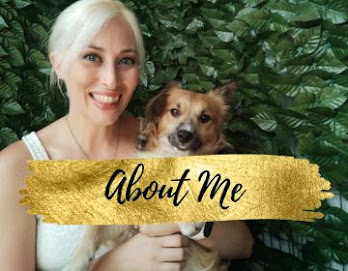Blogging Basics: Answers to the Most Common Questions About Blogging
Blogging Basics: Answers to the Most Common Questions About Blogging
Whether you're thinking about starting a blog or just curious about how it all works, you're not alone. Blogging continues to be a popular way to share ideas, build a brand, and even earn money. In this post, we’ll answer some of the most frequently asked questions about blogging to help you get started — or simply understand it better.
Your Guide to Getting Started and Loving the Blogging Journey
1. What exactly is a blog?
A blog is a type of website or a section of a website where an individual or organisation regularly publishes written content, known as blog posts. These posts are usually presented in reverse chronological order — newest first — and can cover virtually any topic imaginable, from travel and food to business, health, or technology.
2. Do I need to be a good writer to start a blog?
Not necessarily. While good writing helps, blogging is more about communication and connecting with your audience. If you can write clearly and authentically, you're off to a great start. Over time, your writing will naturally improve. Remember: the best blogs often sound like a conversation, not a formal essay.
3. Is blogging still relevant today?
Yes, absolutely. Despite the rise of video content and social media platforms, blogging remains a powerful tool for sharing in-depth information, improving your website’s SEO, and establishing credibility in your niche. Many businesses and individuals use blogs to drive traffic, educate their audience, and even generate income.
4. How do I choose a blog topic?
Start by identifying your interests, expertise, and what your target audience wants to read about. Ask yourself:
-
What topics am I passionate about?
-
Do I have knowledge or experience others might find helpful?
-
Is there a specific audience I’d like to reach?
It’s often best to focus on a niche — a specific subject area — rather than trying to cover too many topics. Although multi niche blogs can also do well when the topics compliment each other.
5. Do I need technical skills to start a blog?
Not really. Thanks to user-friendly platforms like Blogger, WordPress, Wix, and Squarespace, you can set up a blog with minimal technical knowledge. These platforms offer templates and drag-and-drop features to make designing your blog easier.
That said, basic knowledge of things like SEO, image formatting, and using headings properly can go a long way.
6. Can you make money from blogging?
Yes, but it typically takes time, effort, and consistency. Common ways bloggers earn money include:
-
Display advertising (e.g. Google AdSense)
-
Affiliate marketing (promoting products and earning commission)
-
Sponsored posts
-
Selling digital or physical products
-
Offering services (like coaching or consulting)
Successful blogging often requires building a loyal audience first.
7. How often should I post on my blog?
There’s no fixed rule, but consistency is key. Posting once a week is a common recommendation for new bloggers. Regular posting keeps your audience engaged and can help with search engine rankings. It’s better to post high-quality content less frequently than to publish rushed or low-value posts daily.
8. How do people find my blog?
Here are a few ways to attract readers:
-
Optimise your blog posts for search engines (SEO)
-
Share your content on social media
-
Engage with online communities in your niche
-
Guest post on other blogs
-
Encourage readers to subscribe to your mailing list
Growing an audience takes time — don’t be discouraged if it starts off slowly.
9. Should I use a free or paid blogging platform?
Free platforms such as Blogger and WordPress.com are a good starting point for beginners, but they come with certain limitations — including restricted design options, limited plugin support, and adverts you don’t earn money from. Blogger, owned by Google, is very simple to set up and integrates easily with other Google services, but it offers minimal customisation and hasn’t seen much development in recent years. WordPress.com, on the other hand, is more modern and flexible, but many features require a paid upgrade.
If you're serious about blogging and want full control over your site’s appearance, functionality, and monetisation, it’s worth considering a self-hosted blog using WordPress.org with your own domain name. This option gives you complete freedom and presents a much more professional image.
10. Any tips for staying motivated to blog?
Absolutely:
-
Write about topics you genuinely care about
-
Set realistic goals (e.g., one post every two weeks)
-
Keep an editorial calendar to plan content in advance
-
Celebrate small wins (like your first comment or share)
-
Remember: every blogger starts small. Progress comes with persistence.
Final Thoughts
Blogging can be incredibly rewarding — whether as a hobby, a creative outlet, or a career path. The most important thing is to start. Don’t worry about being perfect; focus on being consistent and authentic. With time, you’ll find your voice, grow your audience, and perhaps even turn your blog into something much bigger than you ever expected.
You might also like: Things That Should Be In Every Blog Post

.jpg)



.jpg)
.jpg)



.jpg)


.jpg)
.jpg)



0 comments